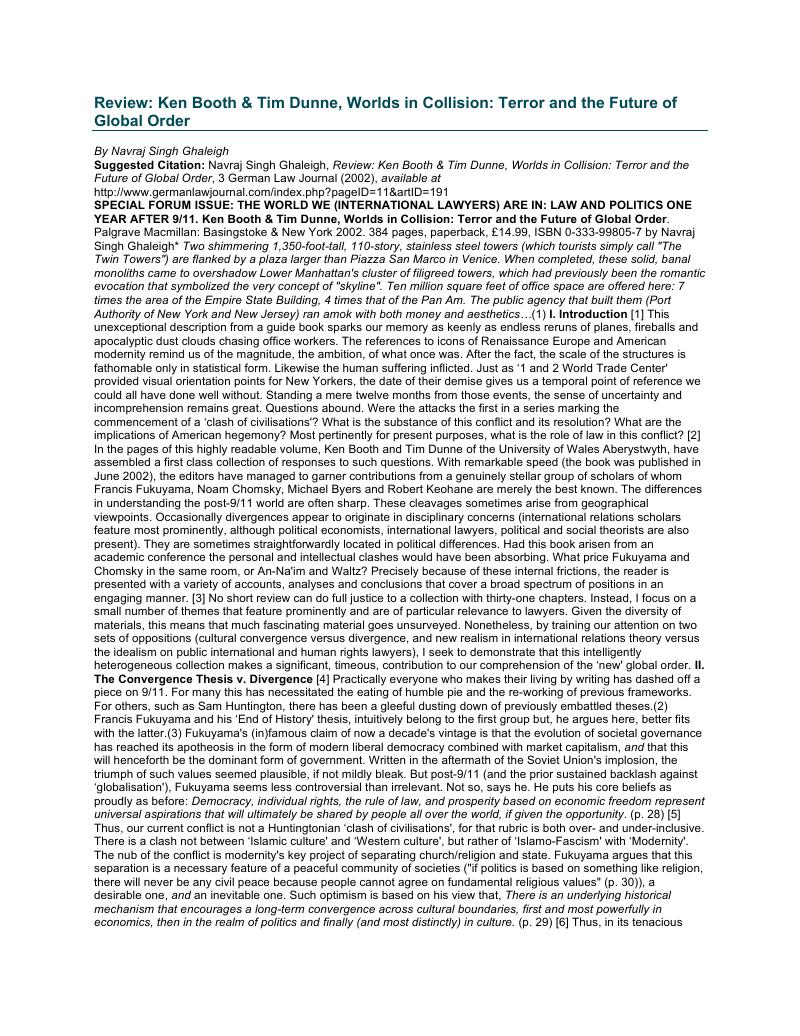No CrossRef data available.
Article contents
Review: Ken Booth & Tim Dunne, Worlds in Collision: Terror and the Future of Global Order
Published online by Cambridge University Press: 06 March 2019
Abstract
An abstract is not available for this content so a preview has been provided. As you have access to this content, a full PDF is available via the ‘Save PDF’ action button.

- Type
- Review Article
- Information
- German Law Journal , Volume 3 , Issue 9: Special issue - The War on Terror - One Year On , September 2002 , E6
- Copyright
- Copyright © 2002 by German Law Journal GbR
References
White, N & Willensky, E, The American Institute of Architects Guide to New York City (New York: Three Rivers Press, 2000), 53.Google Scholar
See in particular his, The Clash of Civilisations and the Remaking of World Order (New York: Simon & Schuster, 1996).Google Scholar
The End of History and the Last Man (New York: Free Press, 1992)Google Scholar
(Basingstoke: Macmillan, 2000).Google Scholar
As Madeleine Albright pithily put it, “we will behave multilaterally when we can and unilaterally when we must.” Quoted by Michael Cox at 159.Google Scholar
An argument for the peripherality of terrorism in international affairs in powerfully made by Waltz in his chapter, The Continuity of International Politics.Google Scholar
Gray cites the USA's December 2001 withdrawal from the Anti-Ballistic Missile Treaty, claiming that it was a “legal” move – meaning that it was consistent with the norms of public international law. This is far from obvious however. Indeed it is a highly contested matter, turning on whether there has been a “fundamental change of interests” which, according to the Vienna Convention on the Law of Treaties [1961], would permit a withdrawal from treaty obligations. Given his own view as to the somewhat marginal import of 9/11, that would presumably not suffice as a “fundamental change of interests”.Google Scholar
HLA Hart, The Concept of Law (Oxford: Clarendon, 1994)Google Scholar
On this, see A Neier, “The Military Tribunal on Trial”, New York Review of Books, February 14, 2002, 7-8.Google Scholar
Principally, authority from the UN Security Council sanctioning the use of force, pursuant to Chapter VII of the UN Charter.Google Scholar
By pleasingly coincidence, the permanent members of the UN Security Council, like Charles II's committee of ministers (the original ‘cabal') also number five.Google Scholar




